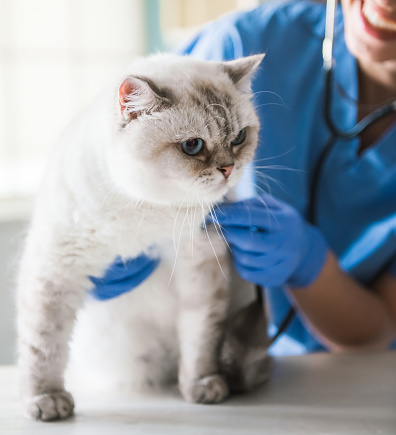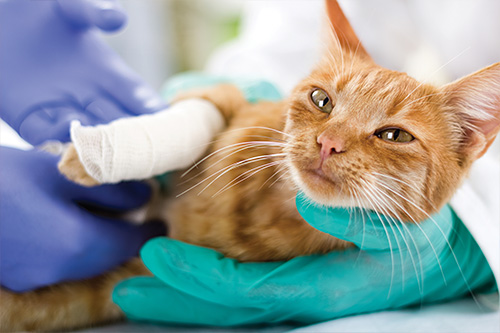We perform many types of orthopaedic (bone) surgeries in our clinic. Because we want to ensure that our patients receive the best possible outcome, we occasionally refer them to board-certified orthopaedic surgeons to perform back surgery and other very complex surgeries.
Leg fractures are the most common orthopaedic problem presented at our clinic and usually result from a mishap with an automobile. They can be treated in a variety of ways depending on the location and type of fracture. We can apply a cast to treat certain fractures; however, many fractures will require surgical intervention:
- “Pinning” stabilizes the fracture by inserting a long stainless steel rod into the middle of the bone across the fractured area.
- “Plating” involves attaching a flat stainless steel plate to the bone using screws on either side of the fracture.
- “External fixation” stabilizes fractures using a series of pins on the outside of the leg that pass through the skin and into the bone on either side of the fracture.
We also perform a lot of orthopaedic surgeries related to hip dysplasia and disc disease. Please contact us if you have any questions about these procedures or if you think your pet might benefit from them.
To schedule your pets surgery please call our office 248-642-2050





